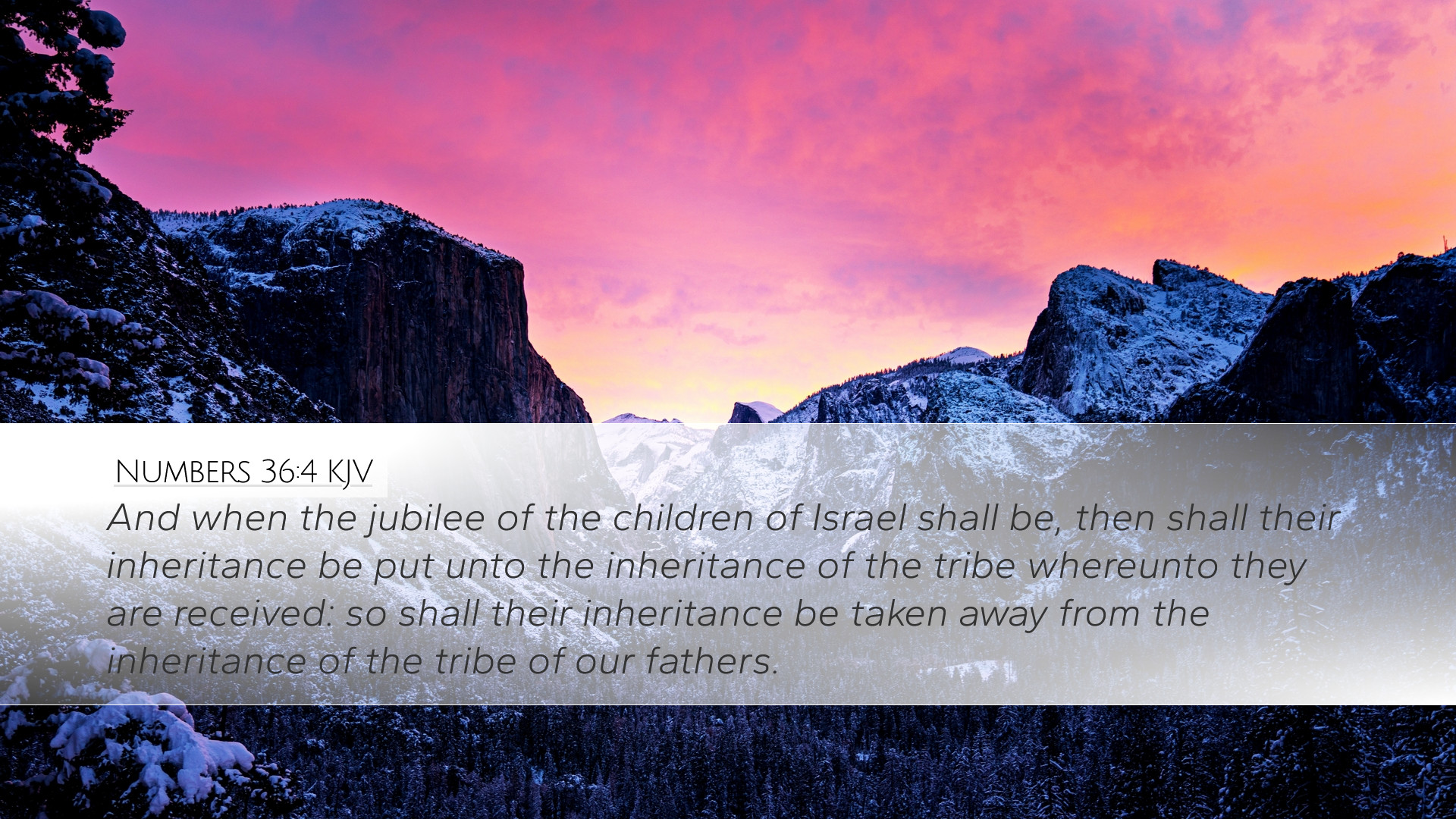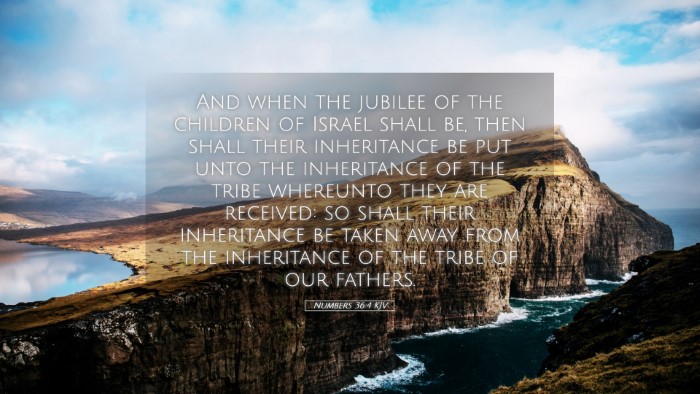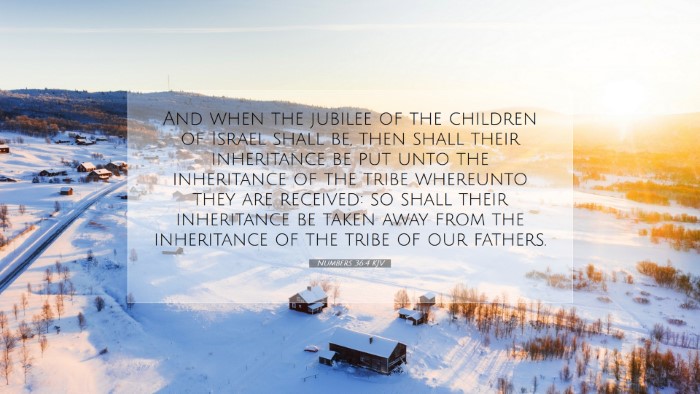Commentary on Numbers 36:4
Numbers 36:4 reads, "And when the jubilee of the children of Israel shall be, then shall their inheritance be put unto the inheritance of the tribe whereunto they are received: so shall their inheritance be taken away from the inheritance of the tribe of our fathers."
Contextual Analysis
The context of Numbers 36 is critical for understanding this verse. The chapter addresses concerns of the daughters of Zelophehad, who were granted the right to inherit land in a patriarchal society. This situation raises significant issues regarding the preservation of tribal inheritance and the strategic management of land among the tribes of Israel, particularly during the year of Jubilee when lands were returned to their original owners.
Thematic Insights
- Divine Justice: The allocation of inheritable land demonstrates God's justice in providing for His people.
- Community Welfare: The implications of inheritance laws underscore the communal responsibility of tribes to maintain their territorial integrity.
- Inclusion and Grace: The daughters' inheritance reflects God's grace in allowing women a share in the promise of His land.
Commentary from Matthew Henry
Matthew Henry emphasizes the importance of maintaining the integrity of tribal boundaries and the potential complications when individual inheritances merge into the larger tribal inheritance. He remarks on the necessity of adhering to the divine order and principles established by God, suggesting that these principles were designed to protect the identity and legacy of each tribe.
Henry also notes that the possession of land was not merely for personal gain but was part of God's covenant with His people, wherein the land served as a physical and spiritual representation of their relationship with Him.
Insights from Albert Barnes
Albert Barnes provides a detailed exposition on the implications of the phrase "when the jubilee" as it pertains to the management of Israel's inheritance. He argues that the jubilee cycle serves as a divine reset, a reminder that all land ultimately belongs to God and is only entrusted to the tribes and families for stewardship.
Barnes highlights the significance of the daughters of Zelophehad making their case within the framework of God’s law, to ensure that justice prevails while also conforming to societal norms. This serves as an early model of advocacy for righteousness and equity within scriptural precedent.
Reflections from Adam Clarke
Adam Clarke approaches the text with a practical lens, focusing on the societal implications of the inheritance laws at play. He remarks that the concern about the inheritance being 'taken away' showcases the importance of maintaining familial heritage, particularly within the context of tribal genealogy which was a critical aspect of ancient Israelite identity.
Clarke also stresses that God's laws, though sometimes restrictive, are meant for the preservation of order and equity among the community. He encourages readers to reflect on how these ancient laws speak to contemporary issues of inheritance and legacy in modern society.
Theological Implications
Numbers 36:4 invites deeper theological reflection regarding inheritance as a metaphor for spiritual legacy. Just as the Israelites are concerned with land inheritance during the jubilee, Christians today are reminded of their spiritual inheritance through Christ and the implications of maintaining that inheritance within the community of faith.
This verse also calls attention to the principles of justice, stewardship, and the significance of communal integrity in maintaining a relationship with God and preserving His covenant among His people.
Conclusion
In summary, Numbers 36:4 serves as a rich text for understanding the dynamics of inheritance in the Israelite community and offers important insights into God’s overarching plan for His people. Combining the perspectives of Matthew Henry, Albert Barnes, and Adam Clarke provides a well-rounded view of the practical, theological, and historical importance of the laws of inheritance, reminding us of the price of justice in the community of faith while emphasizing the grace that allows all believers to inherit the promises of God.


